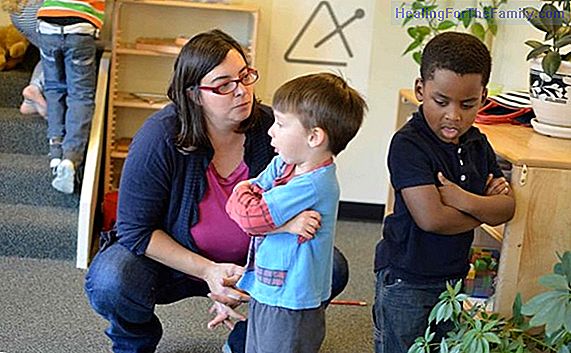Ten guidelines for teaching children to do housework
Teaching children to do housework is something that brings parents who want their children to participate more in the household chores of the day. a day. So that this is not a daily battle when they are teenagers, it is best to inculcate the habit when they are little and they want to imitate everyt
Teaching children to do housework is something that brings parents who want their children to participate more in the household chores of the day. a day. So that this is not a daily battle when they are teenagers, it is best to inculcate the habit when they are little and they want to imitate everything that older people do.
Remember that young children are willing to participate as a family, to feel useful and to be considered part of this team that we form a father, mother and older siblings, if there are any, either setting the table or picking up their dishes.
How to teach children to do housework

1- Suggest, do not impose. When children are small, between 2-3 years, we should suggest and invite them to do these small tasks. If we suddenly force them to dress themselves or make their bed, we may provoke an initial rejection that leads to unnecessary conflicts. It is better to give them the opportunity to want to collaborate, to want to be one more, like the rest and stimulate interest in participating in their image, the order of the house, cleanliness, hygiene ...
2- Assign a small list of daily tasks to the child according to their age and maturity. Homework should never be such a big effort as to cause frustration or take time to do homework or play. In children between 3-4 years we can ask them to dress, put on their pajamas and leave dirty clothes in the laundry basket. As they grow up we will gradually add responsibilities such as putting and picking up the table, feeding their pets, preparing the school backpack or ordering their room.
3- Writing homework helps remember. Having written down the tasks that each one must do helps young and old to remember what their responsibilities are. It is good to have them in a visible place so as not to forget what we should do.
4- Accompany and guide them during the process. Explain with positive language what, how, when and why they should do their homework. Explanations should be brief and clear, without long speeches or sermons. For example: "Every morning we leave the bed made before going to school. The room is nicer and you'll sleep better at night "
5- Be role models. Young children learn basically by modeling, that is, by imitating what they see adults do, so they should have the opportunity to observe how we do what we ask of them.
6- Reward the effort. Let's not forget the importance of positive reinforcement after performing a behavior so that it repeats itself. The best rewards are the immaterial: a compliment, a kiss, a sticker or an activity together.
7- Do not do for them what they can already do alone. Following Maria Montessori's line any unnecessary help is an obstacle to learning.
8- Do not expect perfection. Young children have limited motor skills so it is normal for them to drop things, spill the water or not know how to stretch and fold their clothes properly when they make their bed.
9- No shouting or bad manners. The screams never teach the behavior we want our children to do or give us more authority. The cries paralyze and subtract credibility. If we are going to lose patience, it is best to leave the task for another moment of greater serenity and start over.
10- Infinite patience. Parents should arm themselves with infinite patience when we are establishing the habit of performing housework. Patience because their times are different from ours, patience because any task requires a time for learning and patience because sometimes the negatives and conflicts will appear.












